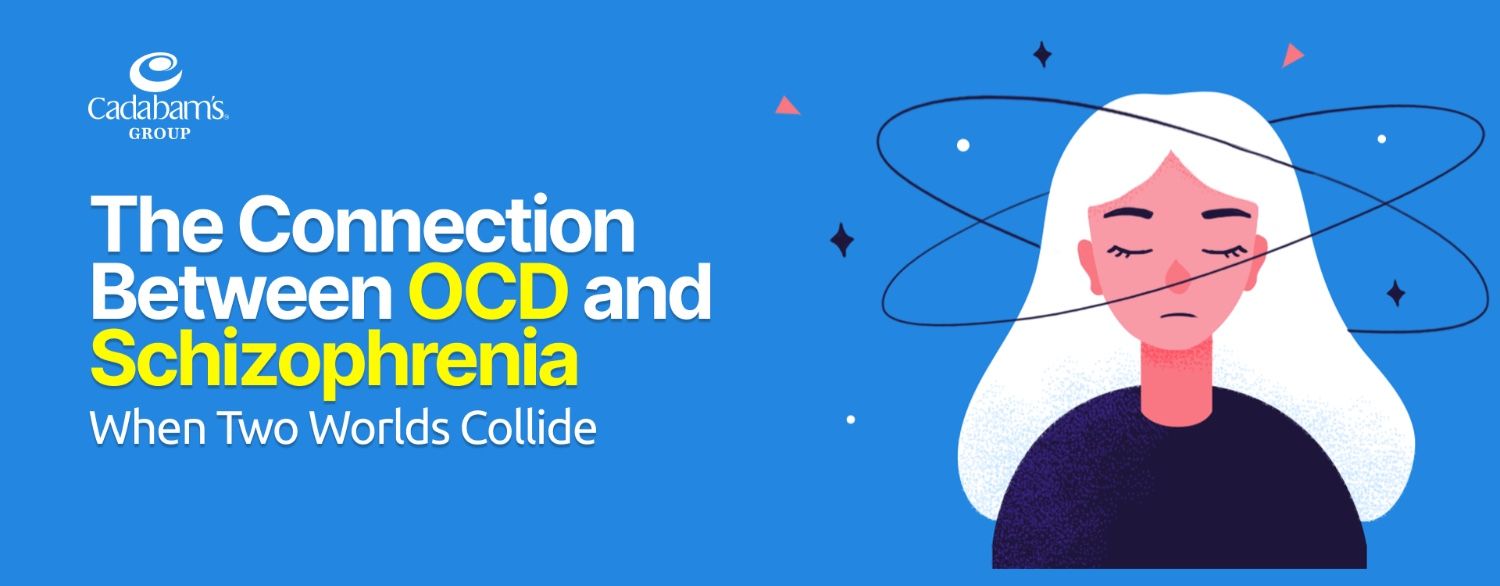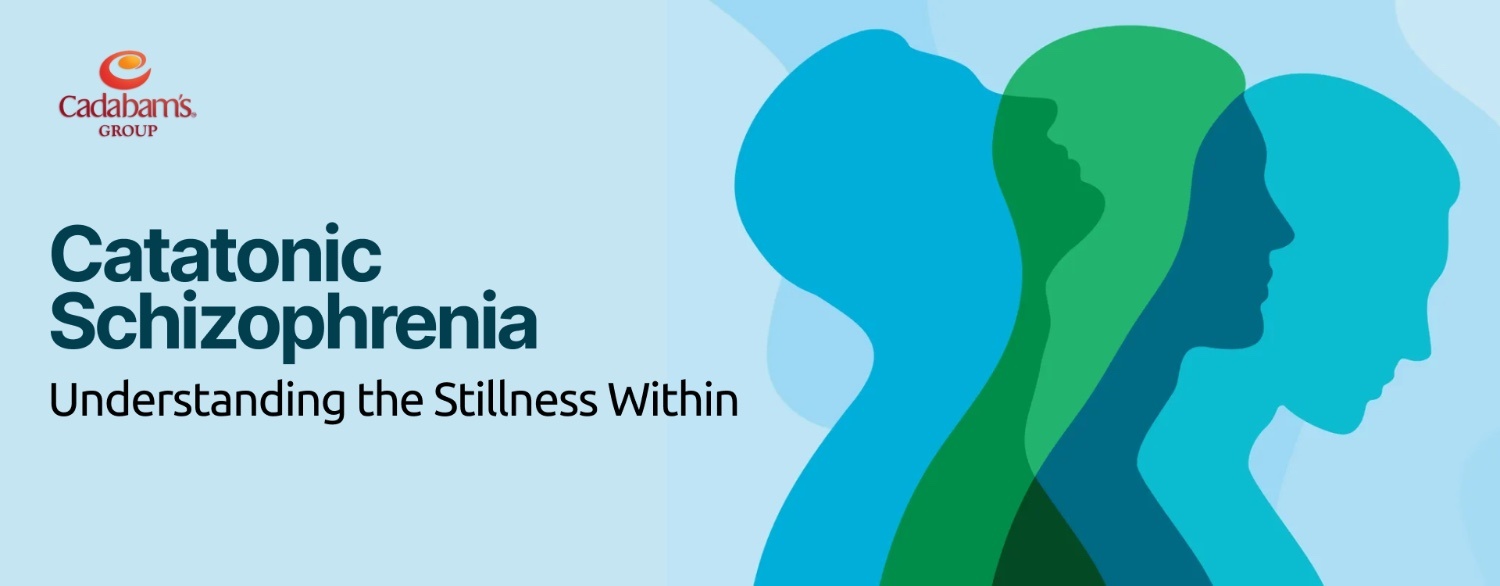Navigating OCD and Schizophrenia can be incredibly challenging, and it's important to acknowledge the complexities that arise from these conditions. While they are fundamentally different, the overlapping symptoms can often lead to confusion and difficulty in identifying each disorder. In some cases, concerns like can OCD lead to schizophrenia may arise, adding to the uncertainty individuals face.
It's essential to approach this journey with compassion and understanding, and identifying these small details is essential in determining the best management and support tactics. Understanding OCD vs schizophrenia can help clarify misconceptions and ensure appropriate treatment.
We’re here to help guide you through the connection between OCD and Schizophrenia, explain how they differ, and offer support on how to manage both conditions with care and understanding. If you’ve ever worried about OCD turning into schizophrenia, seeking professional guidance can provide reassurance and clarity.
Overview of OCD and Schizophrenia
Obsessive-Compulsive Disorder (OCD) is a condition characterised by intrusive thoughts (obsessions) and repetitive behaviours (compulsions). Individuals with OCD have the urge to do some rituals to eliminate anxiety.
Schizophrenia, however, is a severe mental illness that alters the way a person thinks, feels, and behaves. It leads to a distorted sense of reality through hallucinations and delusions. Even though both OCD and Schizophrenia impact mental health, they vary in their symptoms and causes. Understanding them and their traits is very crucial in distinguishing them.
Can OCD Lead to Schizophrenia?
Many wonder, does OCD lead to Schizophrenia? The answer to that question is no. OCD does not cause Schizophrenia. While some signs may seem related, OCD and Schizophrenia are disorders that are triggered by very distinct causes.
OCD is a type of anxiety disorder, whereas Schizophrenia is a psychosis disorder. Nonetheless, OCD individuals could be severely traumatised, with psychotic symptoms rare. Many might think OCD turning into Schizophrenia. Each remains entirely different; however, professional guidance and therapy are necessary.
Potential Risks and Overlaps
There are risks in misinterpreting symptoms of OCD and Schizophrenia, as they can sometimes appear similar. For instance, obsessive thoughts in OCD may sometimes be confused with delusions seen in Schizophrenia.
However, delusions in Schizophrenia are typically more fixed and disconnected from reality, whereas the person recognises obsessions in OCD as irrational. OCD schizophrenia overlaps can make diagnosis difficult, so healthcare providers need to assess symptoms carefully to avoid confusion. However, can OCD lead to Schizophrenia? Not necessarily. The two can co-occur, but one does not cause the other.
Understanding Obsessions vs. Delusions
The main difference between obsessions in OCD and delusions in Schizophrenia is that of insight. OCD individuals are always aware of the irrational nature of obsessive thoughts and often feel they must carry out rituals in order to avert feelings of anxiety.
Individuals with Schizophrenia rarely have insight into delusions and sometimes believe the false beliefs presented to them are fundamental. This difference explains the nature by which OCD and Schizophrenia develop and why different treatments are used.
Can you receive a diagnosis of both OCD and Schizophrenia?
Yes, a diagnosis may be given to an individual experiencing OCD and Schizophrenia comorbidity at the same time. It is comorbid because two different mental conditions occur together. Both need to be treated as comorbidity OCD schizophrenia and thus, the process should be well-coordinated in treatment. A mental health practitioner would be able to navigate the challenges and offer specialised therapeutic solutions for the effective management of the two disorders.
Does OCD mimic Schizophrenia?
People often wonder, “are OCD and schizophrenia related”? Sometimes, symptoms of OCD mirror schizophrenia presentations. Precisely, when the obsessions are out of control, obsessive thoughts and compulsions mirror those of a psychotic process. Individuals with OCD generally possess insight into how irrationally the thoughts operate.
However, individuals with Schizophrenia generally have been disengaged from reality to the point of no recognition that their thoughts and perceptions have no basis. Recognising the differences is key to distinguishing OCD vs Schizophrenia.
Obsessions without insight
Obsessions without insight are a common feature of Schizophrenia, but in some cases, it is the hallmark of OCD. Intrusive thoughts felt to be as accurate as the delusions in Schizophrenia might be common in OCD individuals, but a critical difference exists in the fact that people with OCD can recognise the irrationality of their thoughts even though they may feel compelled to act them out. This distinction is crucial, as many individuals may wonder, "does OCD lead to schizophrenia?" when their obsessive thoughts become overwhelming.
Psychosis
Psychosis can be a symptom of both Schizophrenia and, in rare cases, severe OCD. This difference often leads people to ask, “Are OCD and schizophrenia related”? The psychosis seen in Schizophrenia typically includes hallucinations and delusions, whereas psychosis related to OCD is usually tied to obsessive thoughts and compulsive behaviours. It's worth mentioning that psychosis in OCD is not the same as the full-blown psychotic episodes in Schizophrenia. Many may wonder, “ can OCD cause Schizophrenia?” The answer is no, but in rare cases, severe OCD can include psychotic features.
Catatonia
In some cases, individuals may worry, "does OCD lead to schizophrenia?" Catatonia is another symptom that can overlap between OCD and Schizophrenia. This condition, characterised by a lack of movement or response, is often associated with Schizophrenia but can also occur in OCD in cases of extreme distress or anxiety. If catatonia is present, healthcare providers must differentiate between the two conditions to offer the most appropriate care. Understanding the distinction is crucial, particularly for those who fear OCD turning into schizophrenia, as proper diagnosis ensures the right treatment and support.
Can OCD trigger Schizophrenia?
Many may think, “can OCD cause Schizophrenia?” While OCD cannot cause Schizophrenia, the significant levels of stress and anxiety associated with OCD sometimes can trigger psychotic symptoms. But what is essential to know is that OCD triggers do not necessarily cause Schizophrenia. Both can co-occur, but one does not cause the other.
OCD and Schizophrenia overlap
The OCD schizophrenia link is a very complicated one. Even though the two can coexist, the management and treatment must be handled with care. A common query many may have is, "can OCD cause schizophrenia?" due to the overlapping symptoms and distressing intrusive thoughts. However, while OCD can be severe and debilitating, it does not directly cause schizophrenia. Understanding the OCD and schizophrenia differences aids in effective management and providing appropriate support for someone struggling with both.
How to distinguish between OCD and Schizophrenia
Knowing the difference between OCD and Schizophrenia helps with proper diagnosis and treatment. A diagnosis of Schizophrenia has the main features of delusions or hallucinations, whereas OCD is mainly driven by anxiety, with intrusive thoughts unwanted in the mind. The comparison of OCD vs schizophrenia highlights how these two conditions manifest differently. Treatment of OCD schizophrenia should be specific to each case, focusing on what makes the person's situation unique. OCD Schizophrenia symptoms need a tailored treatment approach focusing on the individual's unique condition.
Treatment options for OCD and Schizophrenia
Treatment for OCD and Schizophrenia comes in the form of both therapy and medication. Treatments for OCD include Cognitive Behavioural Therapy (CBT) in combination with antidepressants called SSRIs; for Schizophrenia, it may consist of taking antipsychotic medication as well as supportive psychotherapy to stabilise symptoms effectively.
OCD treatment
Treatment of OCD schizophrenia is given a more personalised approach that mainly incorporates Cognitive Behavioural Therapy (CBT) and exposure therapy to help combat obsessive thoughts and compulsive behaviours linked to OCD. Medication will be used to treat the anxious feelings and obsessive tendencies as well.
Schizophrenia treatment
In contrast, treatment for Schizophrenia often includes a prescription of antipsychotic medication to treat delusions and hallucinations. Psychotherapy would be provided to address the psychological needs of an individual. Since OCD schizophrenia treatment is unique, knowing the approach helps treat both conditions at the same time.
Treatment for co-occurring OCD and Schizophrenia
Recognising and managing OCD schizophrenia symptoms is essential for tailoring the right treatment plan. When OCD and schizophrenia comorbidity exist, the treatment plan must address both conditions simultaneously. The aim will be to reduce each disorder's negative impact by improving their quality of life. Effective treatment means a multi-faceted approach with medication, psychotherapy, and lifestyle intervention.
Managing Co-Occurring OCD and Schizophrenia
When OCD and Schizophrenia comorbidity exist, treatment must address both conditions simultaneously. Effectively managing co-occurring OCD and Schizophrenia involves a holistic approach, embracing cognitive-behavioural therapy for OCD alongside antipsychotic medication for Schizophrenia. With early intervention and consistent support, we can significantly enhance symptom management and greatly improve overall quality of life.
Diagnostic Process
The diagnosis process for OCD and Schizophrenia is complicated. Precise diagnosis entails a detailed assessment to distinguish symptoms between the two conditions. Thus, people can receive the best possible treatment in their best interest. The following are the steps taken in a diagnostic process:
- Comprehensive evaluation: Includes interviews with the individual and their family and a review of their medical and psychiatric history.
- Symptom review: For instance, clinicians review specific symptoms like obsessions and compulsions for OCD against delusions, hallucinations, and cognitive impairments for Schizophrenia.
- Psychological assessment: Standardised tests should be applied to understand the nature of the symptoms and their impact on daily life.
- Observation over time: Continuous monitoring to trace patterns of behaviours and symptoms, ensuring an accurate diagnosis.
- Dissociation between disorders: Identification of whether the symptoms are from OCD, Schizophrenia or any comorbidity.
- Medical history: Consideration of any family history and previous diagnoses of mental health disorders.
- Personalised treatment planning: Based on the diagnosis, an individual might be put on Cognitive Behavioural Therapy (CBT) for OCD along with antipsychotic medications for Schizophrenia.
- Early intervention: Early diagnosis would help achieve maximum treatment with a good long-term outcome.
Importance of Early Intervention
Early intervention is of extreme importance in the treatment of OCD and Schizophrenia. The earlier it starts, the better its chances are of bringing a good outcome for the individual. It can also prevent the worsening of OCD schizophrenia symptoms, and the condition may be much more manageable.
Cadabam’s Expertise in Navigating the Complex Relationship Between OCD and Schizophrenia
At Cadabam's, we are aware that OCD and Schizophrenia are two quite complex conditions. Our professionals work with each individual to understand and navigate through these conditions so that one can make an individualised treatment plan and ongoing follow-up. We are here to help guide you in your path toward relief from OCD Schizophrenia or with your loved one's path toward relief.
If you are searching for a solution to your problem, Cadabam’s Rehabilitation Centre can help you with its team of specialised experts. We have been helping thousands of people live healthier and happier lives for 30+ years. We leverage evidence-based approaches and holistic treatment methods to help individuals effectively manage their OCD and Schizophrenia. Get in touch with us today. You can call us at +91 96111 94949.
FAQs
Is OCD linked to Schizophrenia?
Yes, Schizophrenia and OCD can be related at times, though the two are separate disorders with unique symptom profiles. The overlap is primarily with intrusive thoughts but varies according to the presence of delusions and psychosis.
Are OCD and psychosis related?
While these two conditions have anxiety, with the presence of compulsions in OCD and psychosis in Schizophrenia, the two differ in terms of severity and nature of symptomatology.
How are OCD and Schizophrenia related?
Although Schizophrenia shares an essential characteristic of intrusive thoughts with OCD, that disorder has psychotic features in addition to delusions and hallucinations.
Is magical thinking Schizophrenia or OCD?
Both OCD and Schizophrenia reveal magical thinking at times, though in OCD, this phenomenon is irrational and in Schizophrenia, it can form a fixed delusion.
.webp)






